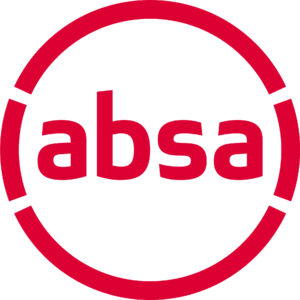Much has been said about the African growth story and the opportunity our continent presents. But the role of financial institutions in securing that growth cannot be underplayed. As a corporate and investment bank in and for Africa, we operate in the knowledge that what we do can drive rapid economic growth and human development, a necessary precursor for addressing some of the continent’s most critical development issues.
Corporate and Investment Banks are uniquely positioned to support development by the very nature of the work they do in developing market economies. We appreciate the opportunities we have in order to make a valuable contribution to the continent’s development, and therefore have to consider very carefully where we deploy our capital and resources.
But what does the continent need to thrive and where can we participate to enable the most meaningful impact?
Of course there are binding constraints to growth and development in Africa. Financial systems and inclusion are underdeveloped in many countries and institutional capacity and governance continues to mature. Increased regional economic integration bodes well for progress in financial sector development, regulatory oversight, technological advancement and the implementation of growth friendly policies.
The launch of the Absa AFM Index which measures the level of development of the financial markets in Africa based on a comparison of 17 countries is one of the steps we have taken to assist in market development and transparency.
The index was launched alongside the IMF meetings in October 2017. Subsequently, it was also launched in various African countries to promote the index locally and also get buy in from local stakeholders. The countries are ranked according to a number of measures, ranging from market depth, regulatory environment to legality and enforceability of agreements, with the objective of focusing the attention of policy makers on structural reforms needed to transform and accelerate the development of the various financial markets.
Market players and stakeholders also see the index as a useful tool that is being used to drive discussions and accelerate reforms in the financial markets in a manner that is structured with a uniquely African lens. The benefits of developing African financial market include the potential reduction of the cost of borrowing and the ability to mobilize capital efficiently.
Supporting economic growth is a critical contribution we believe we can make.
An enormous infrastructure gap makes progress very challenging and as such helping to build the infrastructure required to fuel economic growth is a critical contribution we believe we can make. The provision of electricity generation capacity, can stimulate far-reaching economic growth while providing viable bankable projects for investors. The recent material reduction in the cost of renewable energy makes this form of power even more relevant for the African continent, where affordability remains a key challenge for the many power utilities on the continent.
Financing for renewable energy projects is an important focus area for Absa CIB, not only from a pure debt financing perspective, but also from an economic development perspective. Absa CIB has become a major player in the field as the institutional funding market of such projects has evolved in recent years. In total we have secured debt financing worth R50 billion for 33 renewable energy projects as part of the South African Department of Energy’s latest bidding round under the renewable energy independent power producer programme (REIPPP). These projects, comprising of wind, solar and biomass projects, will add a combined 2900MW to the national grid.
The challenge is now to look beyond South Africa, with interest coming from countries such as Ghana, Zambia, Kenya and Tanzania. The reduction of costs in renewable energy provides many opportunities for investors.
There is boundless potential
The sheer scale of investment banking activity over the last decade across the continent reflects the material potential. With more than $100 trillion in assets managed by institutional investors and commercial banks globally, interest from international institutional investors is not waning, requiring the vast array of services from commercial banking, advisory services, mergers and acquisitions and capital raising.
In recent years African equity markets have seen limited capital raising and against this backdrop, the Vodacom Tanzania IPO in November 2017 stands out as a landmark and transformational transaction, raising capital from domestic and international investors. We were privileged to play an advisory role in helping Vodacom Group on the successful IPO of Vodacom Tanzania on the Dar es Salaam Stock Exchange in 2017. At USD 213 million, the Vodacom Tanzania IPO was the fourth largest in Sub-Saharan Africa outside South Africa since 2008 and in excess of 40 000 local investors participated in the offer, many of whom were first time participants in the capital markets. The need for financial inclusion is an obvious requirement for economies to prosper, and to drive investment flow. African countries have an array of options, beyond domestic resources and foreign aid, to support their investments.
There can be no doubt of the transformative power of banking to contribute meaningfully in improving the lives of people, the prospects of institutions and the efficiency of government delivery. In many ways, Africa will lead the rest in banking innovation because it defies the traditional banking models.
We believe that with the bravery to imagine and the will to get things to done, we can help chart the course towards realising possibilities for the continent we serve.
By Mike Harvey and Temi Ofong, Absa CIB joint CEO’s
.png)
.png)
.png)
.png)
.png)
.png)
.png)

.png)
.png)

